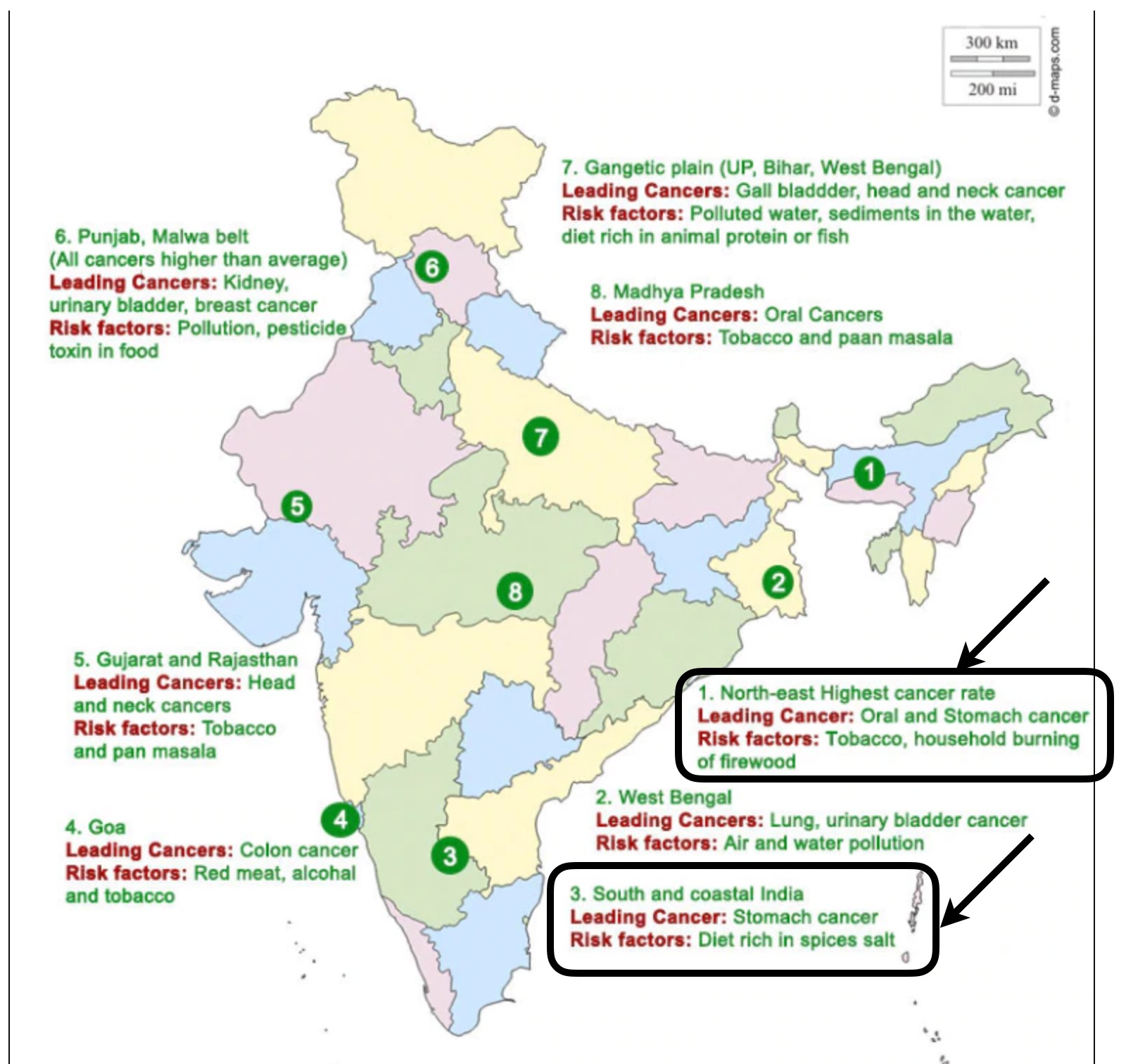At offset 2:45 of this video, Dr Greger mentions that the #1 risk factor for stomach cancer are salted fermented vegetables; he attributes the high incidence of stomach cancer in Korea to kimchi. In the article Are kimchi and sauerkraut harmful? (2012), Dr Greger explains:
In the paras above, Dr Greger refers to three of his videos listed below:
(1 min) Transcript. Dr Greger's summary: "Epidemiological evidence that kimchi consumption may significantly increase cancer risk."
(4 mins) Transcript. Dr Greger's summary: "Miso is packed with sodium, which is linked to both stomach cancer and high blood pressure, so is it safe to consume?"
(5 mins) Transcript. Dr Greger's summary: "Dinosaur kale and red cabbage are put to the test."
WCRF (World Cancer Research Fund) / AICR (American Institute of Cancer Research) publishes its recommendations every 10 years or so: 1997 (1st report), 2007 (2nd report), 2018 (3rd report) — also available in HTML format). Collectively, these reports constitute a gigantic treatise on nutrition and cancer; very readable. Here are two documents relevant to salt and cancer:
- (2018) Matrix for All Cancers — one of the columns is titled "foods preserved by salting", explained in footnote #29. The footnote explains that such foods 'probably' cause cancer.
- (2018) Stomach Cancer Report, Section 7.3 ("Foods preserved by salting" summarizes the evidence so far; it's from observational studies. Dr Greger has a solitaroy video on this subject: Is Kimchi Good For You?
In the 2007 guidelines, one of the recommendations under Salt and Cancer Risk was
In 2018 guidelines, I couldn't find such a recommendation even though the overall nature of the evidence has not changed much. What is the explanation for omission of salt elimination guideline in 2018? This article explains:
WCRF / AICR evidence classification is into 3 categories: strong (either "convincing" or "probable"), limited (either "limited — suggestive" or "limited — no conclusion"), or "substantial effect on risk unlikely." In the 2018 report, salt is "probable" (in other words, the evidence is strong — not as strong as "convincing" though).

As per this article in India Today (2018), stomach cancer is the leading cancer in South & Coastal India; it is also common in North East India. See Regions 1 and 3 in the photo.
What is stomach cancer in India attributed to? See the "Diet and Lifestyle" section in this research paper: Epidemiological review of gastric cancer in India by Dikshit, Mathur, Mhatre, and Yeole, Indian J Med Paediatr Oncol. 2011 Jan;32(1):3-11. Excerpts from this research paper:
The evidence for the relationship between salt and cancer (stomach cancer in particular) is not as strong as the relationship between smoking and cancer. But salt is problematic for many other reasons: Salt & Hypertension, Salt & Heart Disease and Salt: Asthma & Autoimmune Conditions. So I choose to forego added salt in my food plates.

 Instagram
Instagram YouTube
YouTube